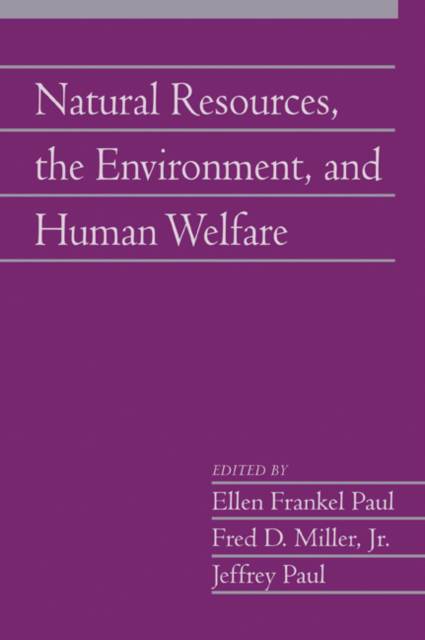
- Afhalen na 1 uur in een winkel met voorraad
- Gratis thuislevering in België vanaf € 30
- Ruim aanbod met 7 miljoen producten
- Afhalen na 1 uur in een winkel met voorraad
- Gratis thuislevering in België vanaf € 30
- Ruim aanbod met 7 miljoen producten
Zoeken
Omschrijving
Modern industrial societies have achieved a level of economic prosperity undreamed of in earlier times, but in the view of the contemporary environmental movement, the prosperity has come at the cost of serious degradations to the natural world. For environmental advocates, problems such as resource depletion, air and water pollution, global warming, and the loss of biodiversity represent due threats to the well-being of human societies and the planet itself. But just how serious are these threats, and how should we go about confronting them? Do environmental problems call for more extensive government controls over industrial activity, energy policy, and the like, or is it possible to find solutions by harnessing the incentives of the free market? The essays in this collection address these questions and explore related issues.
Specificaties
Betrokkenen
- Uitgeverij:
Inhoud
- Aantal bladzijden:
- 442
- Taal:
- Engels
- Reeks:
- Reeksnummer:
- nr. 26
Eigenschappen
- Productcode (EAN):
- 9780521139748
- Verschijningsdatum:
- 27/09/2010
- Uitvoering:
- Paperback
- Formaat:
- Trade paperback (VS)
- Afmetingen:
- 152 mm x 226 mm
- Gewicht:
- 576 g

Alleen bij Standaard Boekhandel
+ 121 punten op je klantenkaart van Standaard Boekhandel
Beoordelingen
We publiceren alleen reviews die voldoen aan de voorwaarden voor reviews. Bekijk onze voorwaarden voor reviews.










